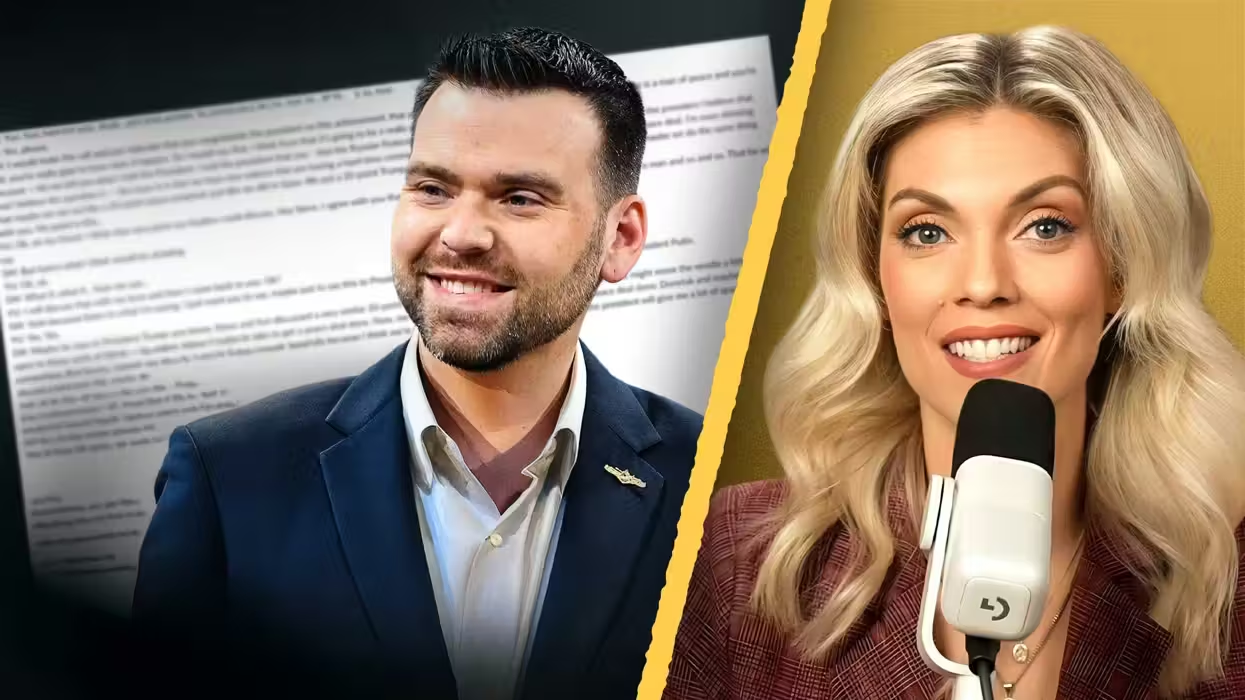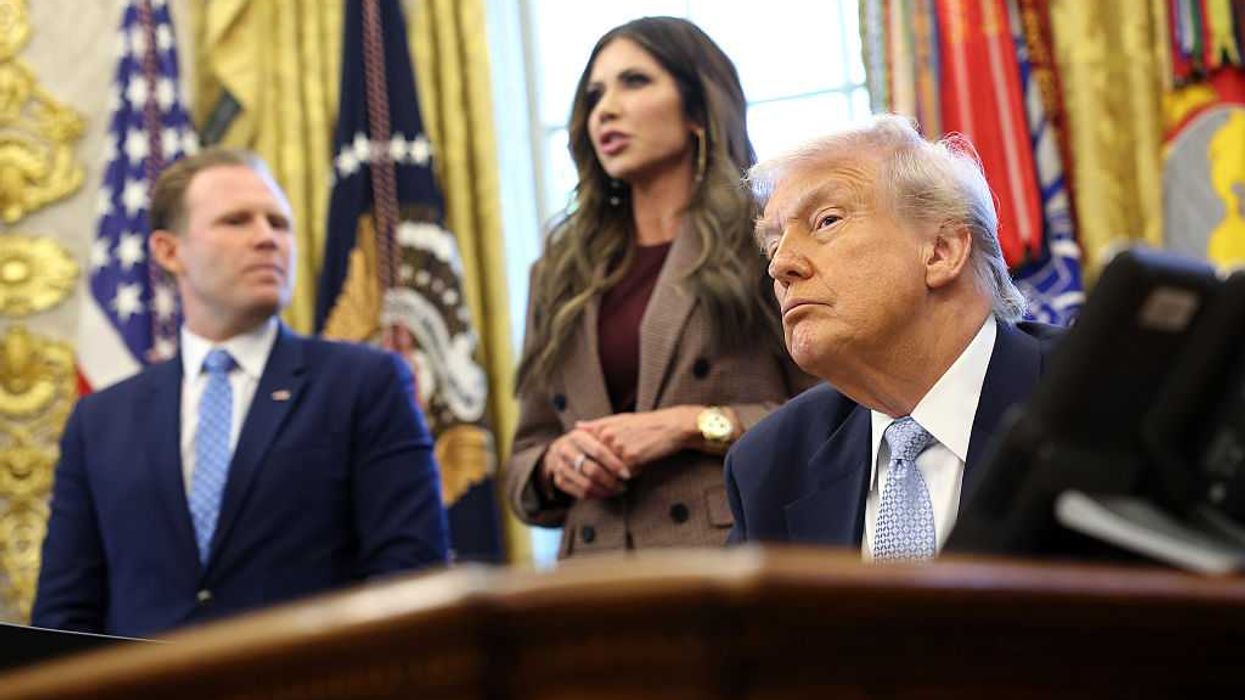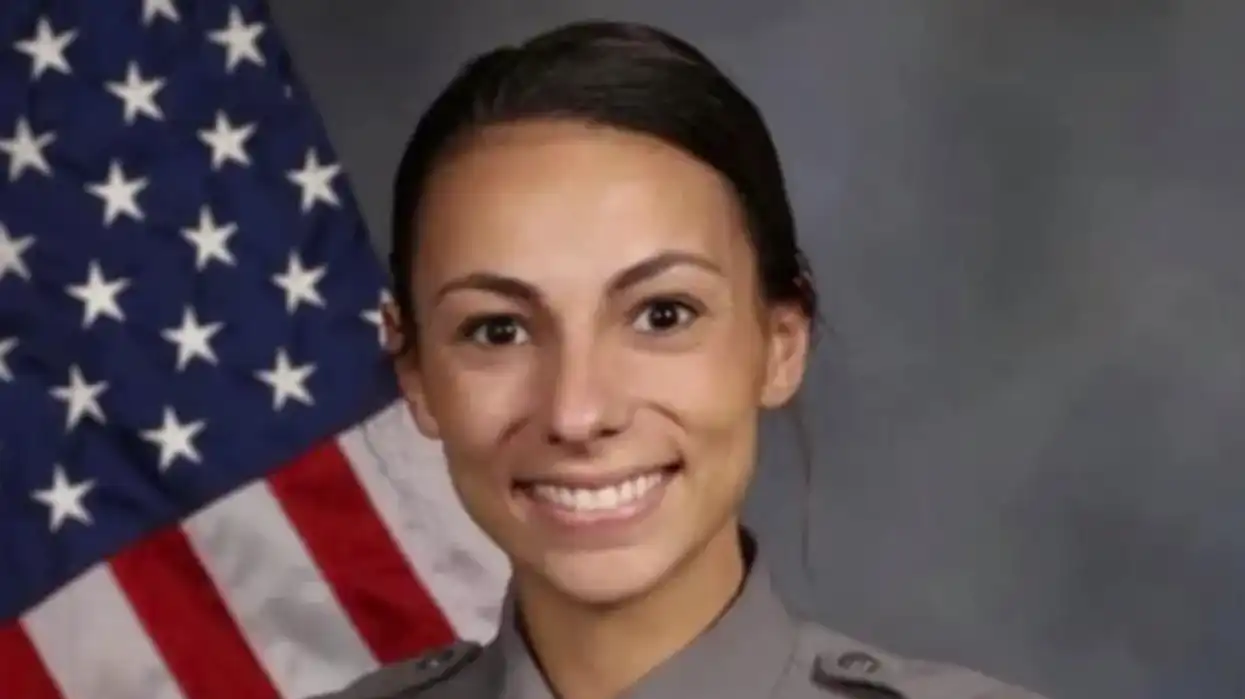
© 2025 Blaze Media LLC. All rights reserved.
Edward Snowden Interview Part II: How He Thought the U.S. Gov't Would React After NSA Leak
July 08, 2013
"But the structures of power that exist are working to their own ends to extend their capability..."
Just after Edward Snowden was granted asylum in Venezuela and Nicaragua late last week, the Guardian has released its second part of its exclusive interview with the ex-CIA employee and former government contractor who about a month ago leaked classified documents revealing domestic and international communication surveillance by the NSA.
 Whistleblower Edward Snowden. (Image: Laura Poitras/Praxis Films via Wikimedia)
Whistleblower Edward Snowden. (Image: Laura Poitras/Praxis Films via Wikimedia)
This second half of the interview, which was conducted on June 6 in Hong Kong by the Guardian's Glenn Greenwald and Laura Poitras, covers what Snowden thought the reaction of the U.S. government would be to his leak of the top-secret programs.
Let's take a look at some of Snowden's thoughts and see how things have played out since:
- "I think the government's going to launch an investigation." -- Yes, it has.
- "I think they're going to say I've committed grave crimes." -- Sen. Dianne Feinstein (D-Calif.), who is the chairwoman of the Senate Intelligence Committee, called Snowden's actions an "act of treason."
- "They're going to say I've violated the espionage act." -- Snowden was criminally charged with espionage.
- "[They're going to say] I've aided our enemies in making them aware of these systems ..." -- Former Vice President Dick Cheney called Snowden a "traitor" who might have been a spy for China.
So based on his speculation, Snowden was dead on in terms of government response.
In the interview, Snowden also said he didn't get into intelligence to be a mole that would eventually leak such programs. He said he enlisted in the Army after the invasion of Iraq because he "believed in the goodness of what we were doing."
"Over time, over the length of my career, as I watched the news and I was increasingly exposed to true information that had not been propagandized in the media, I learned that we were actually involved in misleading the public and misleading all publics not just the American public in order to create a certain mindset in the global consciousness," Snowden continued. "I was actually a victim of that."
"America is a fundamentally good country. We have good people with good values who want to do the right thing," he said. "But the structures of power that exist are working to their own ends to extend their capability at the expense of the freedom of all publics."
When it comes to making the decision to leak about these classified programs, which Snowden said he believes oversteps the bounds of information the government should be able to collect, he said he tried to do his job in the most "policy driven way," which would have been to wait for leadership to "correct the excesses of government." But he found that wasn't occurring and it was even getting worse.
"And no one is really standing to stop it," he said.
Buzzfeed claims to have obtained audio that wasn't included in either of the Guardian's formally released video interviews.
Here's what Buzzfeed included from its transcript that it says wasn't part of the Guardian's most recently released section of the interview:
In the years I’ve worked there you see the new systems that have come up, capabilities of these systems have grown, the amount they can see and ingest and analyze is constantly becoming more and more invasive and the manner in which these authorities are used and applied have become looser and looser to the point where, nowadays, you no longer have the expectation of privacy online, even with privacy advancing technologies. Governments are actively searching for ways to defeat them, to sort of return you to the pen for controlled thought.[...]
The government will follow a simple playbook. I think they will try to destroy my credibility, they’ll attack me personally and they will try to make an example out of me in any way they can to discourage others from coming forward when they find other things they think the government is improperly classifying information. My primary fear is that the government is going to come after my family, they are going to exercise warrants against any location I’ve ever used an electronic device, every friend I’ve ever visited at home, my partner who’s travelled with me throughout the world. My mother, my father — anyone I have (inaudible) with they’ll attack them in lieu of me because they can’t reach me and I think that’s incredibly wrong. But I think they’ll do what they can do send a message that people shouldn’t do this unless they want repercussions.
Watch the nearly seven minutes of excerpts from the Guardian's interview with the 29-year-old Snowden on its website.
--
[related]
Want to leave a tip?
We answer to you. Help keep our content free of advertisers and big tech censorship by leaving a tip today.
Want to join the conversation?
Already a subscriber?
more stories
Sign up for the Blaze newsletter
By signing up, you agree to our Privacy Policy and Terms of Use, and agree to receive content that may sometimes include advertisements. You may opt out at any time.
Related Content
© 2025 Blaze Media LLC. All rights reserved.
Get the stories that matter most delivered directly to your inbox.
By signing up, you agree to our Privacy Policy and Terms of Use, and agree to receive content that may sometimes include advertisements. You may opt out at any time.






